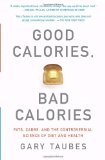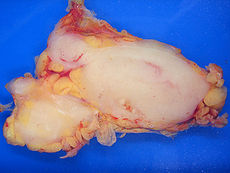I’m dedicating this series of articles to a friend — who just went through cancer surgery and is undergoing chemotherapy — because much of the mainstream wisdom on diets and their effects on cancer, just like other Western diseases, isn’t true or is so vague as to be useless. While I couldn’t possibly cover the broad range of information in just a few articles, I will cover a few important areas to look at because I want to help wade through all the confusing and overwhelming information to get to the important topics for people to consider.
My personal philosophy is to understand nutrition as best as possible, so I can make informed choices about my health. I may know what I should do but am not ready to do it at that time, but at least in the future I have the option to choose the most healthful path as I become ready to accept the change.
High-fat diets, low-fat diets, high-carb diets, low-carb diets, I’ve heard various information about how these diets may contribute or prevent cancer, but how accurate is the information?
 Refined Carbs Cause Diseases
Refined Carbs Cause Diseases
I hadn’t researched cancer to find any answers until I read one of the most important books in my life Good Calories, Bad Calories: Fats, Carbs, and the Controversial Science of Diet and Health (Vintage) by Gary Taubes. Throughout the book, he makes the connection between a Western diet high in refined carbohydrates (e.g., white flour and sugar) and a whole array of diseases that are considered Western diseases: cavities (first symptom), obesity, hypertension, elevated triglyceride levels, diabetes, cardiovascular disease, stroke, cancer, Alzheimer’s, various autoimmune diseases, polycystic ovary syndrome, periodontal disease, appendicitis, peptic ulcers, diverticulitis, gallstones, hemorrhoids, varicose veins, constipation, and many more.
As documented by various doctors, missionaries, explorers, and others who had initial Western contact with isolated hunter-gatherer populations, these populations rarely had any of these diseases until they started eating white flour and sugar. Then, also as documented in numerous cases, the incidences of Western diseases skyrocketed with the incorporation of these new foods. In fact, it’s through studies of native populations that John Higginson, founding director of the World Health Organization’s International Agency for Research on Cancer (IARC), and others have suggested that 70 to 95 percent of all cancers can be prevented through diet and lifestyle.
These studies on native populations are the most reliable information we have about how damaging the typical Western diet is because the human body is much more complex with an extreme number of variables than scientists understand. Scientific research and experiments are not, as I’ve learned, necessarily reliable.
The Difficulties with Scientific Research
Before reading Good Calories, Bad Calories: Fats, Carbs, and the Controversial Science of Diet and Health (Vintage), I had read through many scientific papers defining various nutritional studies and experiments. Most shocked me, not because of the outcomes, but because there was no differentiation of refined carbohydrates and complex carbohydrates (like fruit and vegetables). Also, there was no differentiation of fats: dietary (naturally occurring in the food) and added. (Dietary fat is necessary to prevent certain strokes and at least some cancers.)
These weren’t the only problems I saw. The conclusions drawn in the papers were sweeping generalizations, for the most part, and were not supported by the data. In his book, Gary Taubes points out the same problems with lack of differentiation of macro-nutrients and unsupported conclusions and wrong interpretations of the data. In fact, he goes even further to say that some scientists interpret results to meet their biases (even though that is poor science), and certain powerful people with an agenda and reputations on the line actually have thrown out data that doesn’t support their biases. Taubes presents plenty of evidence to back this up.
The fact is that good scientific nutritional experiments are difficult to implement. Typically, in a scientific experiment, the scientist only wants to change one variable to see what happens, like giving aloe plants red light while other aloe plants get blue light, so there is a one-to-one correlation of aloe plants to light. (Different species of plants may respond differently.) Unfortunately, nutrition is much more difficult to deal with. Reducing carbohydrates, for example, in a diet affects more than one variable. If no other food replaces the eliminated carbs, then the amount of calories is reduced, which does, in itself, have a different effect on the body. On the other hand, if more protein and/or fat is added but calories stay the same, there is still more than one variable affected. Therefore, people are left wondering what actually caused the changes. Was it the reduced calories, carbs, or what? These examples are just at the macro-nutrient level of carbs, proteins, and fats. Food is made from a host of micro-nutrients, too, which present many more variables: vitamins, minerals, etc. Could the bodily changes be due to lack of a certain vitamin, too many calories, reduced calories, too much omega-6, etc.? It’s hard to isolate a certain variable, which is why nutrition studies tend to contradict each other.
Cancer, Metabolic Syndrome, and Refined Carbs
Throughout Good Calories, Bad Calories: Fats, Carbs, and the Controversial Science of Diet and Health (Vintage), Taubes makes the case that there is a connection between metabolic syndrome and Western diseases, including cancer. Metabolic syndrome is the name for a group of risk factors. According the the American Heart Association, these include
- Abdominal obesity (excessive fat tissue in and around the abdomen)
- Atherogenic dyslipidemia (blood fat disorders — high triglycerides, low HDL cholesterol and high LDL cholesterol [especially small, dense LDL] — that foster plaque buildups in artery walls)
- Elevated blood pressure
- Insulin resistance or glucose intolerance (the body can’t properly use insulin or blood sugar)
- Prothrombotic state (e.g., high fibrinogen or plasminogen activator inhibitor–1 in the blood)
- Proinflammatory state (e.g., elevated C-reactive protein in the blood)
If someone has abdominal obesity and any two of these factors, typically he is considered to have metabolic syndrome. For specific values for waist circumference, blood pressure, etc., see the “Metabolic syndrome” article.
Taubes presents research showing that a great many cancers occur as a result of metabolic syndrome, and metabolic syndrome occurs because of eating too many refined carbohydrates. This makes great sense since tumors require great amounts of blood glucose to grow, and the excess blood glucose comes from refined carbs or too many starchy carbs, like white potatoes. It follows that reducing blood glucose would reduce cancer, and this is precisely what a study from Spain published in 2003 showed. (See The Journal of Biological Chemistry abstract “Inhibition of Glucose Metabolism Sensitizes Tumor Cells to Death Receptor-triggered Apoptosis through Enhancement of Death-inducing Signaling Complex Formation and Apical Procaspase-8 Processing.”)
In addition to lowering blood glucose to slow or halt the growth of cancer, numerous animal experiments have shown that calorie restriction dramatically inhibits tumor growth. Animals were given just enough food to prevent starvation. I don’t know about you, but I don’t like the idea of nearly starving myself to prevent cancer. I love to cook and eat great food, so what other options are there?
What about Low-Fat Diets?
There are conflicting studies that suggest low-fat diets prevent cancer. However, Taubes dispels the hypothesis that dietary fat causes cancer. The low-fat diet studies that I’ve seen are all too vague to be useful. Typically, the low incidence of heart disease in Japan is used as the reason people should eat a high-carb, low-fat diet; however, other factors of the Japanese diet and lifestyle were ignored.
A long-term Japanese study of 20 years (“Japanese stroke clues: are there risks to low cholesterol?”) indicated that people with extremely low blood cholesterol levels may be at increased risk for a lethal type of stroke, cerebral hemorrhage. In fact, Taubes talked about this in his book. The Japanese government began to tell people to eat more meat because the incidence of this type of stroke was high. With the inclusion of more meat and animal fat, the incidence of cerebral hemorrhage cases fell 65 percent for males and 94 percent for females. There was no jump in heart disease with the addition of more meat and fat, even though cholesterol levels rose to about 180 mg/dl.
In addition to higher incidences of stroke for the high-carb, low-fat diet, the Japanese study also showed that cancer patients often have low cholesterol levels. Taubes makes a connection with cholesterol levels below 150 mg/dl and these strokes and cancer, and he presented a possible reason for this: cell membranes and other parts of the body, like the myelin sheaths, are made of fat. Therefore, if there is not enough fat in the diet, the cells membranes may become weaker and may not be able to keep out viruses, cancers, etc.
One important factor that was not taken into account in the Japanese high-carb, low-fat diet: the low number of calories compared to what Americans eat. On the high-carb, low-fat, reduced-calorie diet, heart disease remains low; however, on a similar high-calorie diet, heart disease skyrockets. Could cancer be related to over consumption of calories? Yes, depending on the type of calories.
If diets high in refined carbs and low-fat diets aren’t the answer, what is?
Stay tuned for Part 2 in this series: “Some Fats Have Disease-Fighting Properties.”
